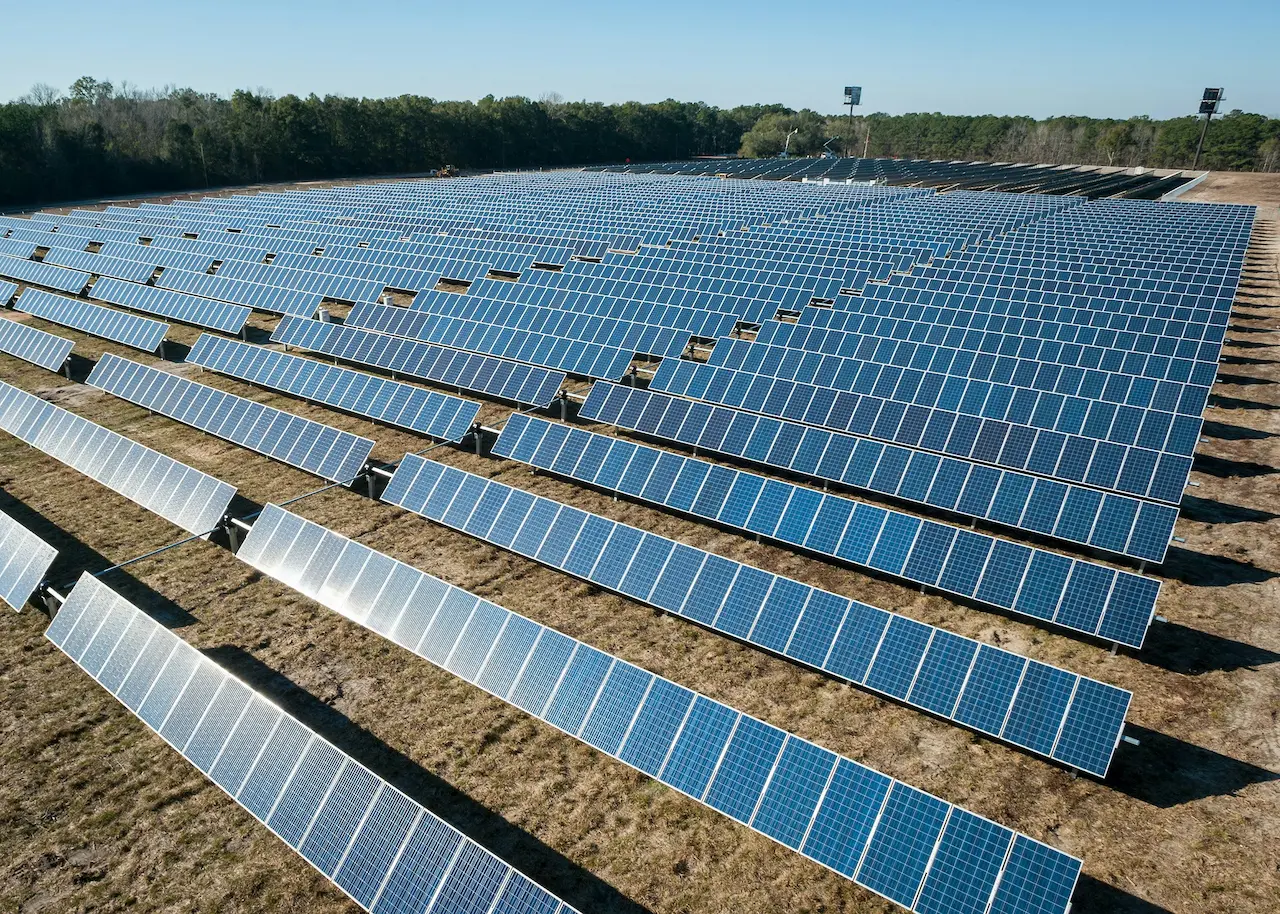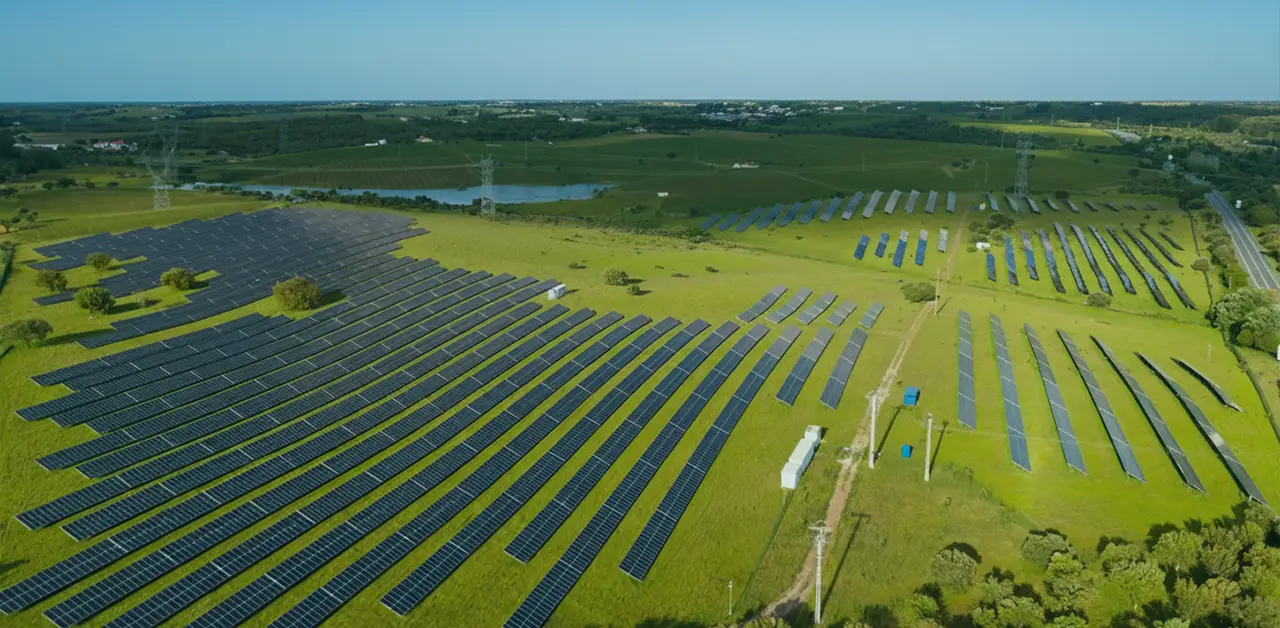Buy Tax Credits
With Confidence
Reunion works with Fortune 500 CFOs and tax leaders to identify high quality tax credits and ensure that risks are properly identified and mitigated.
From sizable 45X AMPCs to diligence-heavy ITCs, our team has facilitated some of the biggest tax credit transfers since 2024.
§45: Major wind and solar transaction between two publicly traded companies
See case study
Credit type
§45 PTC

Amount
$200M

Buyer
Publicly traded Fortune 500 corporation
Annual tax liability:
$100M-$500M
Fortune 500
Publicly traded

Seller
Diversified energy and power company
Assets deployed:
1GW+
Fortune 500
Publicly traded
§45X: Two large 45X transactions between publicly traded corporations
See case study
Credit type
§45X

Amount
$870M

Buyer
Publicly traded Fortune 500 corporation
Annual tax liability:
$1B+
Fortune 500
Publicly traded

Seller
First Solar, Inc.
Assets deployed:
Fortune 500
Publicly traded
§48: Community solar portfolio, which included low-income bonus credit adders
See case study
Credit type
§48 ITC

Amount
$40M

Buyer
Privately held real estate firm
Annual tax liability:
Fortune 500
Publicly traded

Seller
Summit Ridge Energy
Assets deployed:
500MW-1GW
Fortune 500
Publicly traded
§48, §30C: Portfolio of onsite solar, storage and EV charging
See case study
Credit type
§48 ITC, §30C ITC

Amount
Undisclosed

Buyer
Publicly traded energy company
Annual tax liability:
$100M-$500M
Fortune 500
Publicly traded

Seller
Large, diversified publicly traded company
Assets deployed:
500MW-1GW
Fortune 500
Publicly traded
60%
of Reunion buyers
belong in Fortune 500
50%
of Reunion buyers
are publicly traded
We work directly with Heads of Tax, Heads of Treasury, and CFOs of companies with annual tax liability of several million dollars to $1B+.
Guiding Buyers Through Every Step in the Transaction

Credit Sourcing and
valuation
- It can be hard to find projects that match requirements on size, timing, price and risk.
- Reunion curates high quality tax credits from our seller network. We often have early or exclusive access to high quality opportunities

Preliminary Due
Diligence
- Buyers often risk spending time and money on deals that fall apart later in the process.
- Reunion provides a due diligence memo within one week of term sheet, surfacing potential issues upfront.

Closing Due Diligence
and Risk Management
- Specialized expertise is required to ensure efficient due diligence and risk management.
- Reunion assembles a comprehensive data room with critical seller documentation and summarizes it in memo that highlights risks and suggests mitigation steps.

Contract
Negotiation
- Negotiations can fall through, particularly if parties are far apart on key terms.
- Reunion helps both parties understand “what is market” based on our experience as well as our database with terms from hundreds of transactions.
Due Diligence
Industry-Leading Due Diligence
Reunion takes due diligence further than traditional tax credit brokers or marketplaces, delivering a detailed due diligence memo alongside a comprehensive set of supporting documents for each potential transaction. This is why Fortune 1000 companies turn to us for trusted guidance in identifying and mitigating risk.
Market Knowledge
Real-Time Market Intelligence
Reunion’s Market Monitor tracks key terms from over 300 transactions, exceeding $25B in total value, ensuring that our buyers have a good pulse on “what is market.” Our experienced team will guide you through the commercial negotiation process, ensuring fair terms on indemnities, tax credit insurance coverage, tax proceedings, deal durations, credit adders, and more.
Deal Execution
End-to-End Transaction Management
Your corporate tax team has enough on its plate. Reunion takes the lead on managing the entire tax credit purchase process from first outreach to final close. With decades of experience in clean energy finance, we know how to keep deals moving, resolve issues quickly, and get you to the finish line with confidence.
Platform
Differentiated Supply of Tax Credits
The searchable Reunion platform surfaces our deep pool of high quality tax credits. Reunion often has early or exclusive access to high quality opportunities that are not available elsewhere. Our team will also proactively reach out to you when a project surfaces that meets your goals.



FAQs
Frequently Asked Questions
Whether you are experienced with tax credits or buying them for the first time, we have the expertise to help. Here are some common questions we get from buyers.
Should I buy an investment tax credit (ITC) or a production tax credit (PTC)?
Well, it depends! Buyers who want to maximize tax savings typically opt for ITCs, while buyers who want a simpler transaction typically opt for PTCs.
In 2023, ITCs above $10M in transaction size with strong risk mitigation in place were generally trading for $0.91 to $0.93, while PTCs were trading for $0.94 to $0.96. ITCs trade at a wider discount because the due diligence is more involved and ITCs are subject to recapture by the IRS if the underlying asset is abandoned, foreclosed, or placed out of service during the 5-year recapture window.
Is there a deadline for purchasing credits for the current tax year?
You can buy a credit for the current year, up until the date that you file taxes for the current year. For example, a calendar year filer seeking to buy credits for 2024 has until April 15 of 2025 (or October 15, if they file an extension) to buy credits for the 2024 tax year.
What is the timing of when I need to pay cash for the credits?
Tax credits are generally purchased after they are generated. Buyers may commit to purchasing a credit in advance, but typically will only pay cash after the credit has been generated.
Timing of payments is typically a topic of negotiation between buyer and seller. The buyer prefers to pay as late as possible, while the seller would prefer to receive cash as soon as possible. If a seller agrees to delay receipt of payment, it may result in a lower discount to the buyer to compensate for the cost of capital.
The IRS regulation 6418 clearly states that a taxpayer can offset estimated tax payments with tax credits they purchase or “intend to purchase.” This has opened the door for structures in which buyers can achieve the full benefit of the credit before cash outlay. Many buyers seek to structure payments that coincide or occur after their quarterly estimated tax payment dates. For an in-depth discussion of the timing of credits, please read our article here.
What kind of due diligence is required?
For a §45 PTC, buyers should validate that the project qualifies for the tax credit. Due diligence includes confirming that electricity was generated and sold to a third party while also confirming the placed-in-service date of the project.
For a §48 ITC, buyers should validate that the project qualifies for the tax credit and that the risks of tax credit recapture are mitigated. Due diligence includes confirming the cost basis of the project for purposes of calculating the tax credit, typically through a cost segregation analysis by a reputable third-party accounting firm. Buyers should also substantiate any step-up in cost basis, and confirm the placed in service date of the project.
For projects that began construction after January 29, 2023 buyers should validate compliance with prevailing wage and apprenticeship (PWA) requirements. Buyers should also validate that projects qualify for any bonus credit adders such as energy community, domestic content, or the LMI adder (awarded to projects that serve low-income communities that meet certain requirements).







